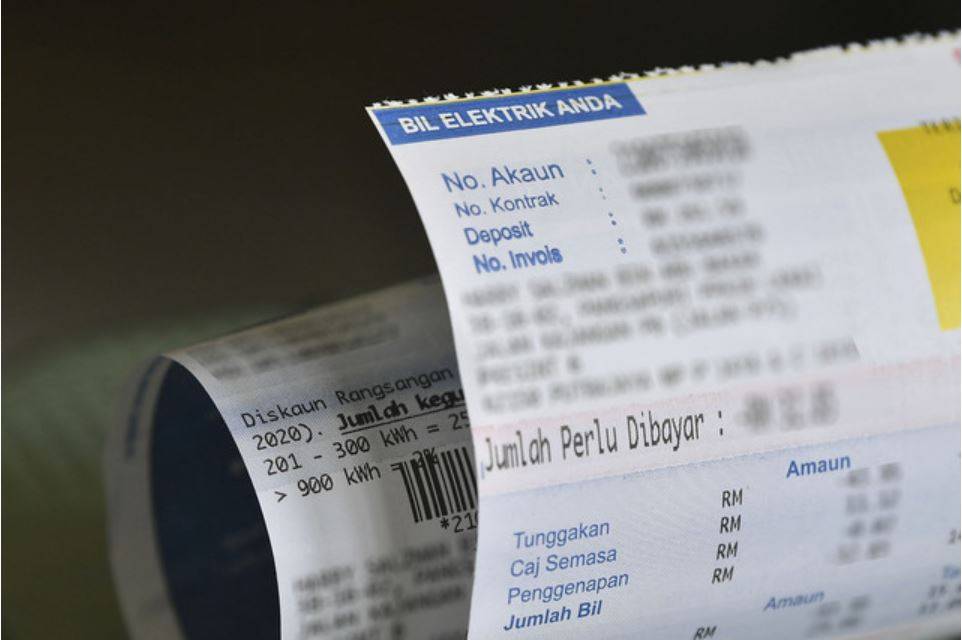Continuing subsidy reforms a must for government to channel funds appropriately

KUALA LUMPUR - Given the weaker global economic situation currently, the implementation of subsidy reforms needs to continue so that the government can channel its funds appropriately to those in need and avoid leakages and loss.
Electricity subsidies should remain targeted at the bottom 40 per cent (B40) and middle 40 per cent (M40) income groups, and small businesses that have been badly affected by the pandemic.
The government has already started implementing targeted subsidies to heavy users whereby domestic households which use more than 1,500 kilowatt-hours (kWh) a month were imposed a surcharge of 10 sen per kWh from July to December this year.
In October, the government stated that targeted electricity subsidies had helped save RM4.6 billion from its coffers this year. The savings were achieved by decreasing subsidies for 1.0 per cent of electricity consumers while ensuring no change in subsidies for the other 99 per cent of users.
Currently, the government has mobilised its strategies to allocate subsidies only to targeted consumers given the ballooning allocation for all subsidies, which reached RM80 billion in 2022 -- the largest amount in history, thanks to high commodity prices amid the global energy crisis following the COVID-19 pandemic as well as the Russia-Ukraine war.
This included a huge increase in the price of coal, a fossil fuel that is entirely imported to generate electricity for Peninsular Malaysia.
Coal, which represents 57 per cent of the power generation mix in the peninsula, saw its price hit an all-time high of US$415 per metric tonne on May 23, 2022, due to the global energy crisis. The global fuel crisis from Oct 2021 has burdened the government with a rising amount of electricity subsidy.
Based on the coal price of US$119 per metric tonne on Nov 17, the cost of electricity generation is still high in Peninsular Malaysia. This is 50 per cent higher than the average coal price of US$79 per metric tonne which was projected in the third Regulatory Period for the Imbalance Cost Pass-Through (ICPT) from 2022 to 2024.
Implemented since 2015, the ICPT mechanism helps protect the industry against fluctuating fuel costs by reviewing fuel prices and generation costs every six months. The mechanism also allows Tenaga Nasional Bhd (TNB), as the utility, to reflect changes in fuel and other generation-related costs in the electricity tariff. This is because these costs are set based on benchmarked prices in the base tariff.
The ICPT, which is reviewed every six months, would reflect the actual costs in tariff in the form of either rebates or surcharges.
Furthermore, the impact of the ICPT implementation is neutral to TNB and will not have any effect on its business operations and financial position.
The ICPT mechanism also allows industries to respond positively to price fluctuations in the international market. Its impact depends on the amount of energy consumed and the charge is reflected in the form of a rebate or surcharge monthly.
The higher generation cost from coal has to be passed through to the identified consumers via surcharge or the government has to continue to incur high electricity subsidy.
The global fuel prices also have seen massive fluctuations amid the pandemic. When the pandemic was at its peak, the already weak oil market succumbed further to falling demand.
From July to December 2022, the government allocated RM5.4 billion for electricity subsidy. This amount rose to RM10.8 billion from January to June 2023 and to RM5.2 billion from July to December 2023.
Between July 1, 2023, and Dec 31, 2023, for domestic users with monthly electricity consumption above 1,500 kWh, a surcharge rate of 10 sen per kWh will be imposed on the total kWh units consumed under ICPT.
Domestic users who consume above 1,500 kWh only comprise one per cent of the total domestic users and they will experience a minimum monthly increase of RM187 (25 per cent) in electricity bills.
In a bid to strengthen the adoption of energy efficiency among Malaysians, the government has allocated RM50 million through the Electricity Supplies Industry Trust Account.
Under this initiative, the public can obtain a rebate of up to RM400 when purchasing energy-efficient appliances such as air conditioners and refrigerators with four- or five-star labels issued by the Energy Commission from Dec 10, 2023, until all the allocation is used up. - BERNAMA













